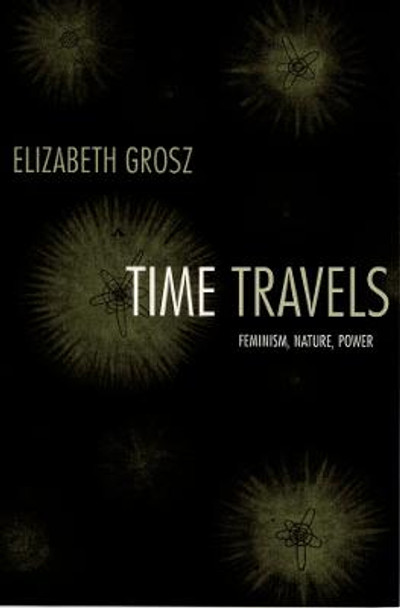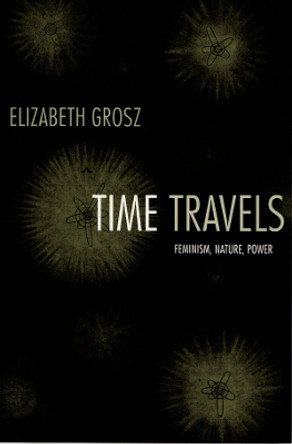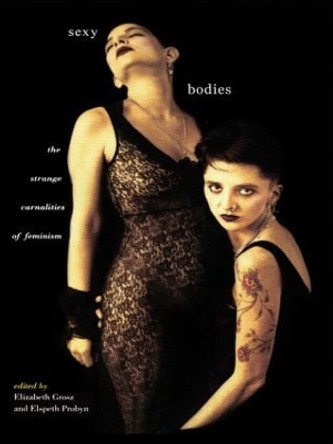Description
Grosz's reflections on how rethinking time might generate new understandings of nature, culture, subjectivity, and politics are wide ranging. She moves from a compelling argument that Charles Darwin's notion of biological and cultural evolution can potentially benefit feminist, queer, and antiracist agendas to an exploration of modern jurisprudence's reliance on the notion that justice is only immanent in the future and thus is always beyond reach. She examines Henri Bergson's philosophy of duration in light of the writings of Gilles Deleuze, Maurice Merleau-Ponty, and William James, and she discusses issues of sexual difference, identity, pleasure, and desire in relation to the thought of Deleuze, Friedrich Nietzsche, Michel Foucault, and Luce Irigaray. Together these essays demonstrate the broad scope and applicability of Grosz's thinking about time as an undertheorized but uniquely productive force.
Essays on the relationship between temporatlity and feminism that focus on the political and philosophical ramifications of being future oriented.
About the Author
Elizabeth Grosz is Professor of Women's and Gender Studies at Rutgers University. She is the author of The Nick of Time: Politics, Evolution, and the Untimely (also published by Duke University Press); Architecture from the Outside: Essays on Virtual and Real Space; Space, Time, and Perversion: Essays on the Politics of Bodies; and Volatile Bodies: Toward a Corporeal Feminism. She is the editor of Becomings: Explorations in Time, Memory, and Futures.
Reviews
"Elizabeth Grosz has long been recognized as one of the most astute commentators on feminism, continental philosophy, and cultural studies. Renowned for her clarity and rigor, she has a well-deserved reputation as a major feminist philosopher. In Time Travels Grosz manages to surpass her already magisterial standards and produce a tour de force of originality. Here, Grosz finds her own voice and argues for a new theory of time and life. This is an exciting, inspired, and inspiring book."-Claire Colebrook, author of Gilles Deleuze
"What does it mean to introduce time into thought? Bergson formulated this question in the nineteenth century; Deleuze took it up again in postwar France. In her philosophical travels through legal studies, new technologies, and debates in Darwinism, Elizabeth Grosz brilliantly pursues its punch for us today: What would it mean for feminism to include an evolutionary materialism of time, and what would it mean for it to become an ineliminable part of a 'new Bergsonism' of the twenty-first century?"-John Rajchman, author of The Deleuze Connections
Book Information
ISBN 9780822335665
Author Elizabeth Grosz
Format Paperback
Page Count 272
Imprint Duke University Press
Publisher Duke University Press
Weight(grams) 386g





